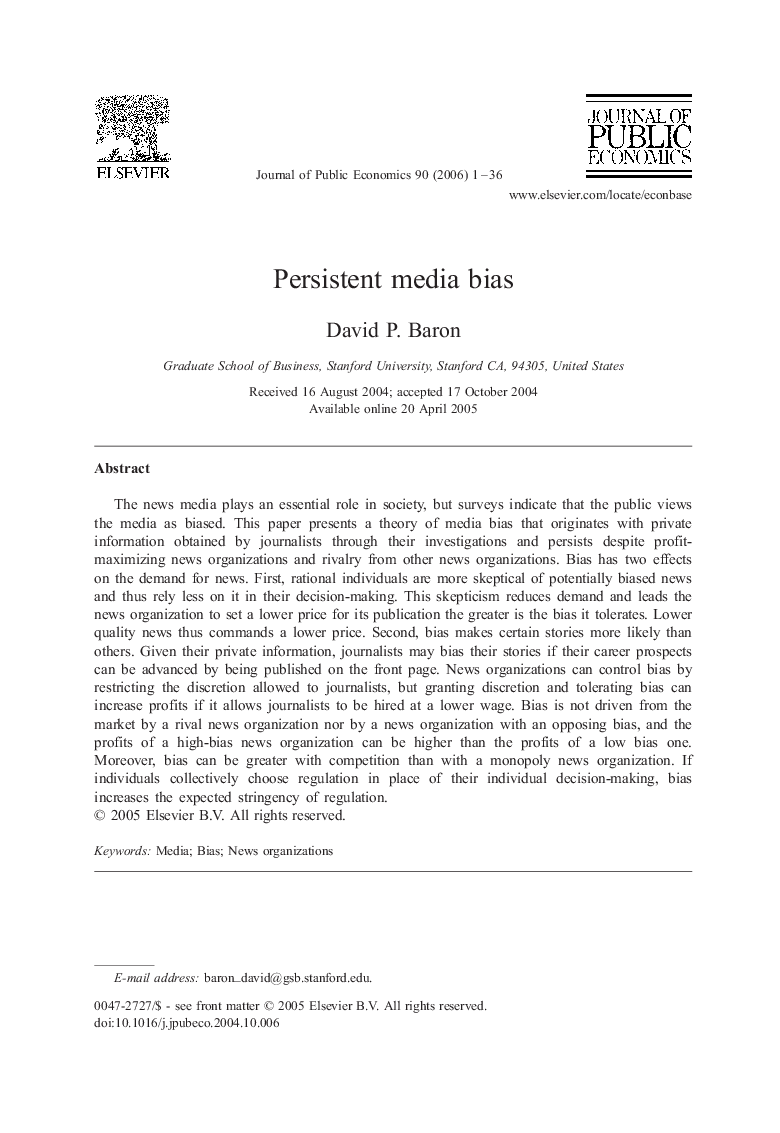| Article ID | Journal | Published Year | Pages | File Type |
|---|---|---|---|---|
| 969598 | Journal of Public Economics | 2006 | 36 Pages |
The news media plays an essential role in society, but surveys indicate that the public views the media as biased. This paper presents a theory of media bias that originates with private information obtained by journalists through their investigations and persists despite profit-maximizing news organizations and rivalry from other news organizations. Bias has two effects on the demand for news. First, rational individuals are more skeptical of potentially biased news and thus rely less on it in their decision-making. This skepticism reduces demand and leads the news organization to set a lower price for its publication the greater is the bias it tolerates. Lower quality news thus commands a lower price. Second, bias makes certain stories more likely than others. Given their private information, journalists may bias their stories if their career prospects can be advanced by being published on the front page. News organizations can control bias by restricting the discretion allowed to journalists, but granting discretion and tolerating bias can increase profits if it allows journalists to be hired at a lower wage. Bias is not driven from the market by a rival news organization nor by a news organization with an opposing bias, and the profits of a high-bias news organization can be higher than the profits of a low bias one. Moreover, bias can be greater with competition than with a monopoly news organization. If individuals collectively choose regulation in place of their individual decision-making, bias increases the expected stringency of regulation.
